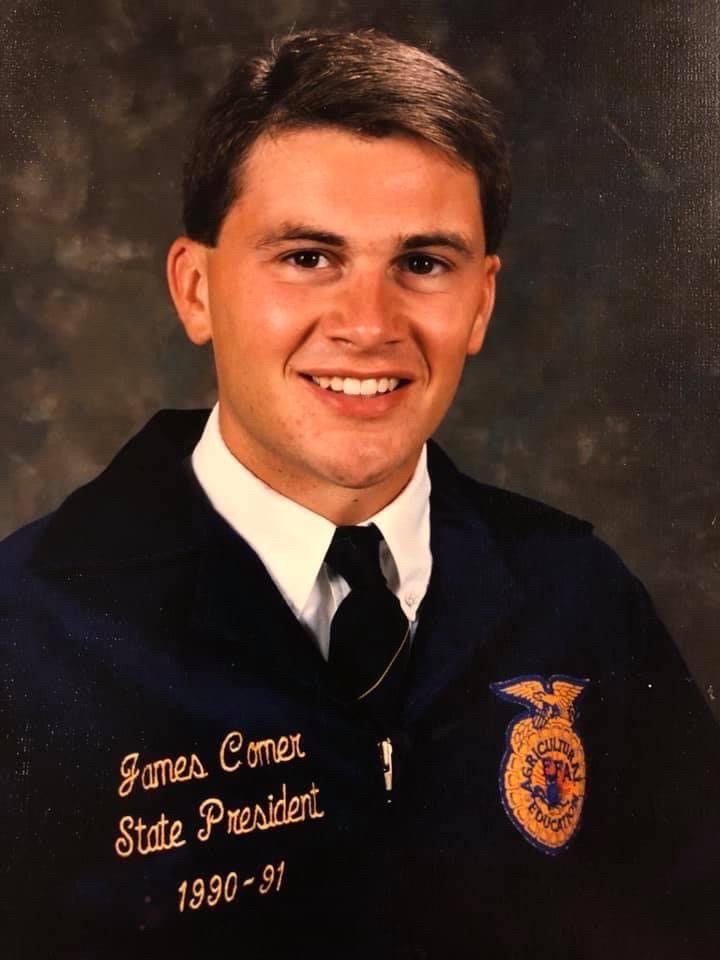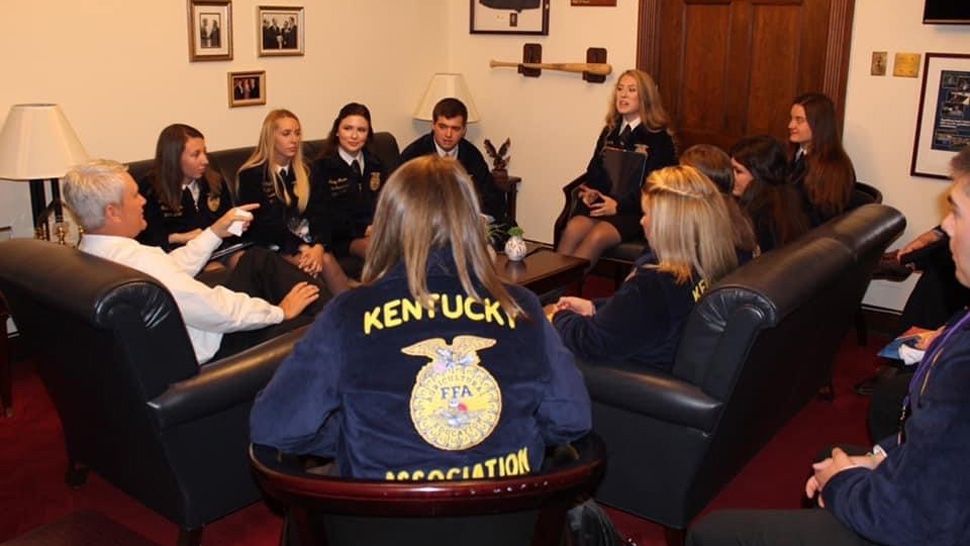WASHINGTON, DC — The walls in Congressman James Comer’s (R-KY) office are lined with wall decorations that represent different pieces of Kentucky. One part of the office is dedicated to his time in the National FFA Organization, a group he says means a lot to him.
“I wouldn’t be in Congress today if it were not for the leadership skills I gained as a young person in FFA,” Comer said.
In high school he was a member of the Monroe County FFA chapter and showed beef cattle all over the United States.

During his time in the organization, Comer worked his way up to being Kentucky’s state FFA President. That role required him to enhance his public speaking, team building and goal setting skills.
Comer is now signing on to a congressional caucus designed to promote the National FFA Organization and support issues related to the next generation of agriculture leaders. The organization aims to help students prepare for careers related to agriculture, food, natural resources and related sciences.

“Agriculture is so much bigger than production agriculture. It’s more than cows, sows and plows,” Comer said. “You’re talking about anything pertaining to our food system.”
The bipartisan caucus was created by Democrat Jimmy Panetta of California and Republican Tracey Mann of Kansas, who like Comer participated in FFA when he was a student.
“As a member of Congress and the House Agriculture Committee, I’m dedicated to raising awareness about school-based agricultural education, FFA, and the next generation of leaders who will feed, fuel and clothe our world,” Mann said in a statement.
The CEO of the National FFA Organization, Scott Stump, says he loves seeing past members like Comer and Mann work to give back.
“We believe that we do great work in that space, growing leaders and growing service-oriented individuals,” Stump said. He added that it’s important to give their students “deep roots” in agriculture.
There are 8,817 local FFA chapters in all 50 states, Puerto Rico and the US Virgin Islands.
“Agriculture is not an easy industry to understand when you start thinking from the point of production and all the input providers who are required for that,” Stump said. “That whole system needs to be represented in this conversation because that’s what it takes to ultimately feed the world.”
Stump says he hopes this caucus will elevate the conversation around their program and allow students to engage with policymakers.
When people look around Comer’s office they can see the important role that FFA played in his success. One photo from his very first trip to Washington stands out among the other memorabilia. It was taken in 1990 with a junior senator who agreed to meet with him when he visited as FFA state president.
“I got to meet Mitch McConnell and we hit it off,” Comer said. “He followed me and my rise up from college Republicans to state representative to ag commissioner and now Congress,” Comer said adding, “so again, FFA opened a lot of doors for me.”



